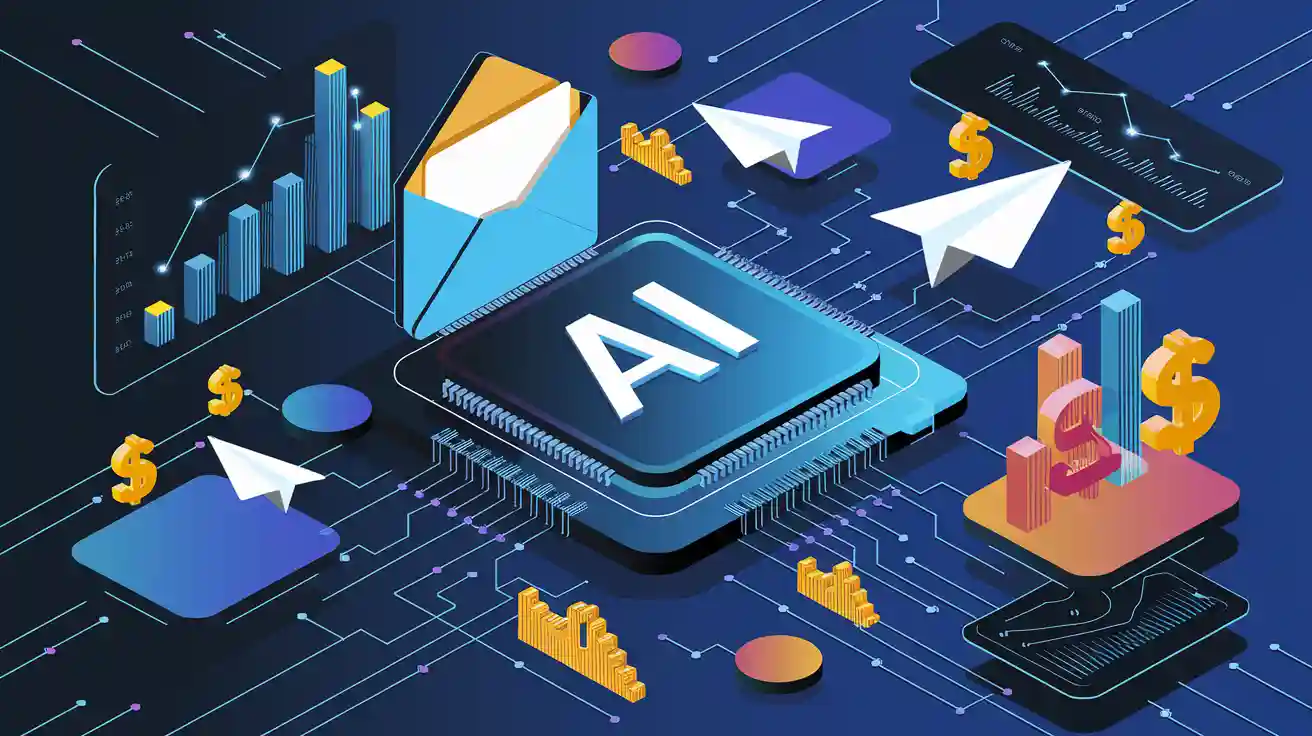In today’s hyper-connected world, customers expect instant gratification and round-the-clock service. For businesses, meeting these demands with human teams alone can be a costly and logistical nightmare. Enter the game-changer: AI Voice Agents. These sophisticated artificial intelligence solutions are rapidly transforming customer interactions, offering unparalleled 24/7 sales and support capabilities. This isn’t just a futuristic concept; it’s a burgeoning reality, a “hot and exciting area” of AI with immense potential to redefine how businesses operate, scale, and connect with their clientele.
The power of AI voice agents lies in their ability to provide instant, intelligent, and tireless communication. Imagine a sales team that never sleeps, or a support desk that’s always available, regardless of time zones or public holidays. This is the promise of AI voice technology, offering significant advantages in scalability, cost-effectiveness, and overall customer experience. From initial lead outreach to resolving complex customer queries, these AI systems are stepping in to handle the “grunt work” more efficiently, freeing up human agents for higher-value tasks. This article delves into how AI voice agents are becoming indispensable tools for modern businesses aiming for growth and superior service.

Section 1: Understanding the AI Voice Agent Landscape: Outbound Prowess and Inbound Welcome
AI voice agents are not a one-size-fits-all solution. They broadly fall into two main categories, each designed to address specific communication needs and business objectives. Understanding these distinctions is key to leveraging their full potential.
Outbound Voice AI Systems: Proactive Engagement at Scale
Outbound AI voice systems are the proactive arm of this technology. These systems are programmed to initiate calls for a variety of purposes. Think of them as tireless virtual salespeople or communicators, capable of reaching out to vast numbers of contacts without fatigue or deviation from their script.
Their applications are diverse and impactful:
- Lead Generation & Cold Calling: Many businesses, particularly in sectors like B2B services and real estate, rely on outbound calling to generate leads. AI voice agents can automate this entire process, meticulously working through lists of potential customers. For instance, Nataly AI by Blackvolution is an advanced AI cold calling solution designed for B2B agencies and Realtors. It automates initial outreach and qualifies leads, allowing human sales teams to focus on closing deals. Such systems can range in investment from $1,000 to $5,000 depending on the client’s appointment goals. Similarly, AI Call Genie by AI Marketing Hub caters specifically to Real Estate Investors, automating lead generation, qualification, and appointment booking – with reported sales of the system at $10,000. AI Voice Assistant by AI Smith, tailored for real estate, makes thousands of cold calls to qualify leads for brokers, offered as a service for around $2,000 USD per month, including setup and a large volume of calls. Tree care businesses can benefit from solutions like AI Answer by S yasar, which acts as an AI Sales Development Representative (SDR) handling lead qualification, appointment setting, and even multi-channel follow-ups via SMS and email, with setup fees around $6,000 and recurring monthly costs.
- Fundraising: Charities and foundations can leverage outbound AI to revolutionize their fundraising efforts. Amplify Voice’s AI voice fundraiser acts as a virtual salesperson, engaging potential donors and encouraging contributions. This allows organizations to reach their entire donor list efficiently without the significant overhead of a large human call center. One such comprehensive solution was reportedly sold for $24,000 (structured as $2,400/month for 10 months plus usage markup).
- Lead Nurturing & Reactivation: Companies like Integrus offer AI voice agents that go beyond initial contact, nurturing leads and reactivating dormant or warm prospects. Their solutions have reportedly been sold for between $3,500 and $8,000, with some larger deals reaching $23,000. A notable example is an AI voice lead qualifier built for a UK whiskey investment company, which automates calls to leads, offering lead magnets in exchange for qualifying answers to identify potential high-value investors. This specific solution was sold for $2,750.
The core strength of outbound AI is its immense scalability. An AI sales rep can make exponentially more calls than a human counterpart, ensuring consistent messaging and tireless outreach.
Inbound Voice Agents: Your AI-Powered Frontline
Inbound voice agents are designed to receive and manage incoming calls. They act as intelligent, AI-powered receptionists or first-line support, ensuring that every customer call is answered promptly and handled efficiently, 24/7.
Key functionalities include:
- AI-Powered Receptionists: These agents can answer calls, route them to the appropriate human agent or department, take messages, and provide basic information. Inbound Agent by Mark Casif is a versatile example, offering a virtual receptionist and caller system for businesses across various industries. It features CRM integration, advanced analytics, voice cloning, and detailed conversational design, capable of handling tasks from appointment setting to custom inquiries. The basic tier for such a service can be around $1,750 per month. Inflate Agency also provides an inbound AI digital receptionist for tasks like customer support, maintenance requests, and appointment booking, particularly useful for businesses like property management companies.
- Automated Appointment Setting: AI agents can seamlessly integrate with scheduling systems to book, reschedule, or cancel appointments based on real-time availability. Exusia Imperium built an inbound AI appointment setter for an insurance company in New Jersey. This system can transfer calls live to human agents, book virtual or in-person appointments, and automatically schedule follow-ups, significantly improving customer experience by providing instant service and flexible scheduling. This solution was sold for $1,600.
- FAQ Answering & Basic Support: Many customer queries are repetitive. Inbound AI can handle a large percentage of these frequently asked questions, freeing up human agents for more complex issues. Systems like Cerberus AI by G Singh, designed for restaurants (an industry notorious for missed calls), can answer common questions, take reservations, or provide directions. Such a system has been reported to sell for $5,000. Laplus Marketing developed an AI voice system for a restaurant in Paris that was missing hundreds of calls daily. Their AI now answers around the clock, arranges reservations, or directs calls appropriately, ensuring no business opportunity is lost.
Inbound AI agents ensure that customers are never met with an unanswered call or a frustratingly long hold time, dramatically improving customer satisfaction and operational efficiency.
Section 2: The Transformative Impact: Revolutionizing Sales and Support Interactions
The introduction of AI voice agents into sales and support workflows isn’t just an incremental improvement; it’s a fundamental shift with far-reaching benefits. Businesses adopting this technology are witnessing significant enhancements in efficiency, customer engagement, and overall performance.
Transforming Sales Interactions: Speed, Scale, and Precision
In the competitive sales landscape, speed and persistence are paramount. AI voice agents excel in these areas, offering capabilities that human teams often find challenging to maintain consistently.
- Unprecedented Scalability and Cost-Effectiveness: A primary advantage is 24/7 availability and near-infinite scalability. Unlike human teams that require hiring, training, and breaks, an AI sales team can handle a massive volume of calls instantly. This drastically reduces labor costs, with per-call expenses plummeting from typical commission percentages (10-20%) to mere cents or a few dollars. Even if an AI’s individual performance rate is slightly lower than a top human salesperson, its ability to make more calls, qualify more leads, and be available 24/7 often leads to superior overall business outcomes and increased bookings.
- Streamlined Lead Generation and Qualification: As seen with solutions like Nataly AI, AI Call Genie, and AI Voice Assistant by AI Smith, AI agents can automate the often tedious top-of-funnel activities. They can make thousands of initial outreach calls, ask qualifying questions, and filter out uninterested parties, ensuring that human sales representatives spend their valuable time on warm, qualified leads ready for more nuanced conversation and deal-closing.
- Consistency and Control: AI sales reps adhere strictly to pre-defined scripts and instructions. This offers remarkable predictability and controllability in outreach messaging. Businesses can easily A/B test different scripts, tones, or offers to optimize their sales approach, gathering data-driven insights at a scale previously unimaginable.
- Enhanced Lead Nurturing: Beyond initial contact, AI can engage in follow-up sequences, reactivate cold leads, and nurture prospects through the sales pipeline, ensuring no potential opportunity slips through the cracks due to human oversight or lack of bandwidth.
Elevating Customer Support: Always On, Always Helpful
Customer support is a critical touchpoint that significantly influences brand loyalty and reputation. AI voice agents are revolutionizing this space by providing consistent, efficient, and ever-present assistance.
- 24/7 Availability and Instant Response: The most immediate benefit is the elimination of “business hours” for customer support. AI voice agents can answer calls, address queries, and provide assistance around the clock, every day of the year. This means customers receive help when they need it, not just when human agents are available, drastically reducing wait times and frustration. Solutions like the AI phone system for restaurants by Cerberus AI or Laplus Marketing ensure that even after-hours calls for reservations or information are handled effectively.
- Efficient Handling of High Call Volumes: Businesses prone to fluctuating call volumes, such as during peak seasons or marketing campaigns, can leverage AI to manage the surge without needing to temporarily hire and train additional staff. Inbound AI agents can handle an estimated 80-90% of common customer queries themselves.
- Consistent and Accurate Information: AI agents deliver information based on their programming and knowledge base, ensuring consistency and accuracy in responses. This reduces the risk of human error or misinformation.
- Seamless Appointment Booking and Management: For service-based industries, AI appointment setters like the one built by Exusia Imperium for an insurance company, streamline the booking process. Customers can schedule, reschedule, or confirm appointments via an automated voice interaction at their convenience, which then syncs with the business’s calendar.
- Personalization at Scale: Modern AI voice agents can integrate with CRM systems, allowing them to greet callers by name, understand their history with the company, and provide more personalized interactions, even in an automated fashion. Mark Casif’s Inbound Agent, with its CRM integration and detailed conversational design, exemplifies this capability.
By automating routine support tasks and ensuring constant availability, AI voice agents empower businesses to offer a superior customer experience while optimizing resource allocation.
Section 3: Specialized Applications and The Dawn of Voice AI Accessibility
The versatility of AI voice agents extends beyond general sales and support. We are now seeing specialized applications emerge, catering to unique business needs. Furthermore, the barriers to creating and deploying these powerful tools are rapidly diminishing, heralding a new era of voice AI accessibility.

Niche Applications: Tailored AI Voice Solutions
The adaptability of AI voice technology allows for its application in highly specific roles, optimizing processes that were once time-consuming and labor-intensive.
- Human Resources and Recruitment: A compelling example is the HR recruitment agent developed by Flowly.Cloud. This AI-powered vetting tool conducts initial screening interviews, asking 10-15 predefined questions in the applicant’s preferred language. It then analyzes the responses, grades them based on set criteria, and shortlists the most promising candidates. This saves HR teams countless hours in the initial screening phase, allowing them to focus on in-depth interviews with the best-fit applicants. Such a specialized system might involve a setup fee (e.g., $3,000) and a monthly retainer (e.g., $500).
This type of focused application demonstrates that AI voice agents can be trained for intricate tasks requiring nuanced understanding and interaction, opening doors for automation in virtually any industry that relies on voice communication.
Building Your Own AI Voice Solutions: The Democratization of Technology
Perhaps one of the most exciting aspects of the current AI voice landscape is its increasing accessibility. The development of AI voice agents is no longer solely the domain of large corporations with dedicated AI research teams. The voice AI space is “only just getting started,” and its growth is being fueled by user-friendly platforms and tools.
- No-Code and Low-Code Platforms: A significant driver of this accessibility is the rise of no-code and low-code platforms. Tools like Bland AI or Vapi provide the foundational voice AI capabilities, allowing users to build sophisticated voice agents often without writing a single line of code. This empowers entrepreneurs, small businesses, and even individuals with no prior technical experience to develop and deploy their own AI voice solutions.
- Automation Tools for Integration: Workflow automation platforms like Make.com (formerly Integromat) or Zapier play a crucial role in connecting these voice AI platforms with other business systems. They enable seamless data transfer between the AI voice agent, CRMs, scheduling software, databases, and other essential applications, creating a cohesive and automated ecosystem.
- Data Management and Prompt Engineering: Tools like Airtable can be used for managing the data that fuels these AI agents, such as lead lists, customer information, or knowledge bases. Crucially, prompt engineering – the art and science of crafting effective instructions and queries for AI models – has become a vital skill. Well-designed prompts are essential for ensuring the AI voice agent understands context, responds appropriately, and achieves the desired conversational outcomes.
- The Impact of Advanced AI Models: Continuous advancements in underlying AI models, such as OpenAI’s GPT-4o, are further accelerating the capabilities of voice AI. These newer models boast improved natural language understanding, more human-like voice synthesis, lower latency (reducing delays in conversation), and the ability to handle audio inputs and outputs more natively. This translates to more fluid, engaging, and effective AI voice interactions.
The combination of powerful yet accessible AI platforms, intuitive automation tools, and increasingly sophisticated language models means that customized, effective AI voice agents are within reach for a broader range of users and businesses than ever before.
Conclusion: Embracing the Voice AI Revolution for Unmatched Customer Engagement
AI voice agents are no longer a futuristic novelty; they are a present-day reality, fundamentally reshaping how businesses engage with their customers for both sales and support. Their ability to operate 24/7, scale on demand, significantly reduce operational costs, and handle a vast array of interactions—from outbound cold calling and fundraising to inbound customer service and appointment setting—makes them an invaluable asset in the modern business toolkit.
The examples are compelling: AI systems generating thousands of leads for real estate agents, AI receptionists ensuring restaurants never miss a booking, AI fundraisers expanding a charity’s reach, and even AI recruiters streamlining the hiring process. These real-world applications, with tangible results and clear ROI, underscore the transformative power of this technology.
Moreover, the increasing accessibility of AI voice development tools means that businesses of all sizes can now explore and implement these solutions. Whether by leveraging pre-built systems or customizing agents for specific needs, the opportunity to enhance efficiency, improve customer satisfaction, and drive growth through AI voice is immense. As AI models continue to evolve in sophistication and naturalness, the capabilities of voice agents will only expand, making now the perfect time for businesses to explore how they can integrate this “hot and exciting” technology into their operations and truly never miss a call—or an opportunity—again.



